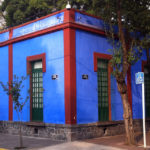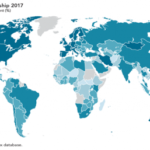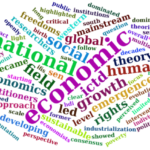I was invited to speak at this meeting thanks to the elections team in New York who furnished my name to the Country Office in Pakistan. I had attended a similar meeting in Guadalajara, México, in April 2013. With the support of our office in Mexico City, a book (actually two books, one in English and one in Spanish) was published containing some of the key papers delivered at the gathering. This was not bound to happen in Islamabad, though.
The Pakistan meeting had an interesting mix of electoral practitioners, social innovators, ICTD experts and parliamentarians and political party representatives. While the first day was focused on an overall introduction to the subject and social innovation (which seemed a bit odd to me), the second day, which proved the be the most exciting, concentrated on electoral processes and politics. The sessions with Parliamentarians and political party representatives were quite dynamic and had a very intense engagement from the audience composed of mostly young people who had plenty of challenging questions. They in fact managed to put on the edge some of the speakers. I was impressed by the level and quality of participation of the young audience.
This is indeed a reflection of the current political situation in the country which seems to be quite volatile at this point in time. Participants even made reference to the fact that YouTube (and other sites) is blocked in Pakistan for reasons the young audience did not quite understand. We do not really get a lot of press coverage in the West about this. In any event, I suggested to the audience to use ToR and try to bypass state censorship.
The third and last half-day of the conference was dedicated to citizen participation and civic engagement. I was in a panel with several people including some one called Mosharraf Zaidi whom I had briefly met a couple of days earlier, during a dinner UNDP Pakistan had organized for speakers the evening before the conference started. On that occasion, a colleague from UNDP mentioned to Mr. Zaidi that I had been been supporting the development of the Internet in Pakistan since 1993. He did not look very thrilled about this, nor did he addressed me in any way. He just turned his back and moved on.
Anyways, I made my presentation and was followed by colleagues from Germany and Kenya. The microphone then went to Mr. Zaidi who immediately proceeded to deliver a personal attack on me for reasons I did not quite understand. Unfortunately, the panel moderator, who was a UNDP staff member, did not take any action whatsoever and instead asked me to respond. When I got the mike back a few long minutes later I just said: “I think it is time for me to go home!”, which generated a loud laugh from the audience.
I later found out that Mr. Zaidi is actually a well-known intellectual in Pakistan who apparently likes to light up fireworks and firecrackers in meetings and elsewhere. And coincidentally he had recently published an Op-Ed in the New York Times a couple of days earlier.
Go figure!
Cheers, Raúl





